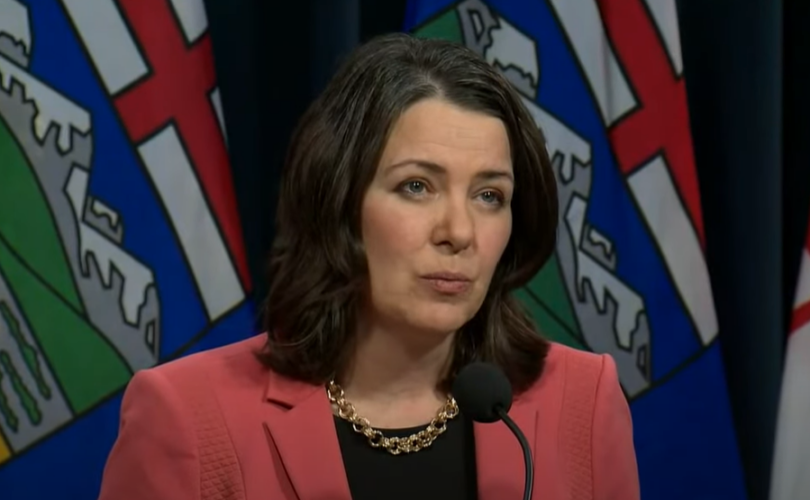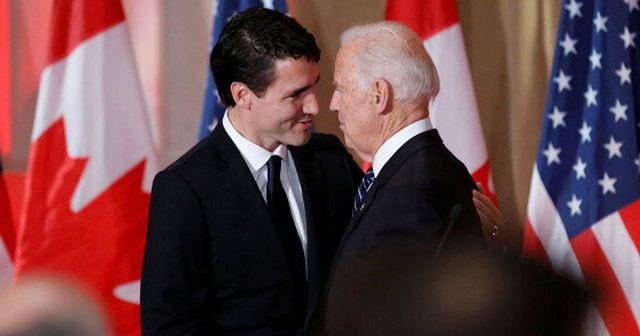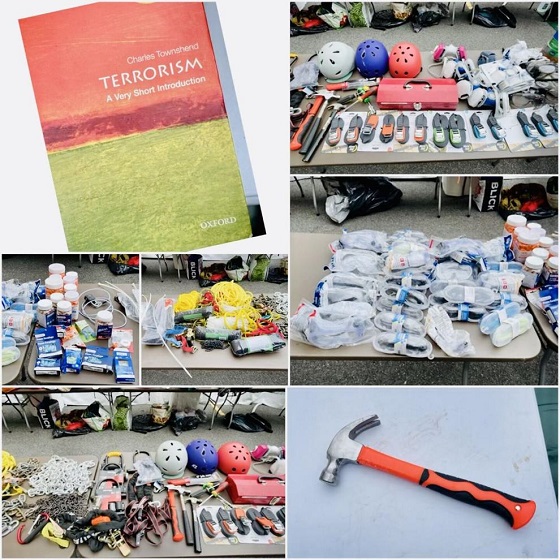espionage
Canada’s intelligence chief says he personally warned Trudeau about China’s election meddling
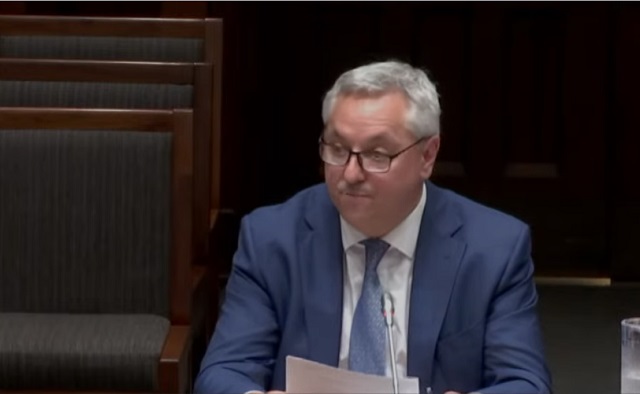
David Vigneault
From LifeSiteNews
Canadian Security Intelligence Service director David Vigneault authenticated memos used during private meetings with the prime minister as well as his staff concerning Chinese Communist deception.
The head of Canada’s intelligence agency testified under oath that he gave Justin Trudeau multiple warnings that agents of the Communist Chinese Party (CCP) were going after Conservative MPs yet the prime minister has denied he ever got these warnings.
In what appears to be a contradiction of Trudeau’s claim that he was not briefed directly about CCP meddling in Canada’s electoral process, Canadian Security Intelligence Service (CSIS) director David Vigneault said late last week at the Foreign Interference Commission that he indeed had “communicated” the issues.
He then authenticated memos used during private meetings with Trudeau as well as his staff concerning CCP deception, which was also noted in a “top secret” memo titled Briefing to the Prime Minister’s Office on Foreign Interference Threats to Canada’s Democratic Institutions, dated February 21, 2023.
The six-page memo went into full detail as to the extent of CCP subterfuge that targeted Canada’s Conservative Party in the 2019 and 2021 federal elections.
The memo read that CCP agents “were almost certainly motivated by a perception the Conservative Party of Canada was promoting a platform that was perceived to be anti-China,” also stating that 2021 election anomalies were “aimed at discouraging Canadians, particularly of Chinese heritage, from supporting the Conservative Party, leader Erin O’Toole and particularly Steveston-Richmond East candidate Kenny Chiu.”
“We know the People’s Republic of China clandestinely and deceptively interfered in both the 2019 and 2021 general elections,” the memo reads.
Vigneault confirmed he used similar language when speaking with Trudeau and political aides.
At the Commission inquiry, Gib van Ert, counsel for Conservative MP Michael Chong, asked Vigneault if “this knowledge something you or the Canadian Security Intelligence Service as a body communicated to the Prime Minister?”
“It is indeed something I communicated,” Vigneault replied.
Thomas Jarmyn, counsel for Erin O’Toole, then asked if “Those words were chosen with intention?”
“Yes, these words are carefully selected,” Vigneault replied.
Earlier this week, LifeSiteNews reported that details from the “top secret” memo have shown that Trudeau’s office was giving explicit warnings by Canadian intelligence that agents of the CCP were an “existential threat to Canadian democracy.”
The Foreign Interference Commission was convened to “examine and assess the interference by China, Russia, and other foreign states or non-state actors, including any potential impacts, to confirm the integrity of, and any impacts on, the 43rd and 44th general elections (2019 and 2021 elections) at the national and electoral district levels.”
The Commission is being headed by Justice Marie-Josée Hogue, who had earlier said that she and her lawyers will remain “impartial” and will not be influenced by politics and began January 29.
In January, Hogue said that she would “uncover the truth whatever it may be.”
Spy head: Trudeau was ‘briefed’
Last week, the commission learned about another “secret” memo from October 26, 2022, about “clandestinely supported candidates” states that “People’s Republic of China officials could be emboldened in their electoral interference efforts by the 2021 defeat of former Richmond MP Kenny Chiu.”
During testimony at the commission, Vigneault confirmed that he mentioned the matter with Trudeau, saying, “This is one of the cases I briefed the Prime Minister on that day.”
Shantona Chaudhury, counsel for the commission, asked him if he was able to recall “whether that is something you conveyed to the Prime Minister?”
“I don’t remember if I used these exact words but talking about that specific case, I put that case in context in relation to other People’s Republic of China activities,” Vigneault replied.
Nando de Luca, counsel for the Conservative Party, then asked Vigneault if the information was specifically communicated to Trudeau.
“I can tell you some of that information was absolutely used to brief on a very specific topic,” Vigneault replied.
Vigneault then noted that all the top-secret memos, which were composed for his meetings with Trudeau’s office, contained many facts as well as similar language he had spoken of many times.
“I have verbalized some of these issues in the past,” Vigneault told the commission.
Despite the warnings given to Trudeau’s office, not once were opposition MPs warned that they were a target of CCP agents.
In May 2023, Trudeau said to reporters that he did not know anything about CCP agents targeting conservative MPs.
“The Canadian Security Intelligence Service knew about certain things but didn’t feel it reached a threshold that required them to pass it up out of CSIS,” he said.
“Was it briefed up out of the Canadian Security Intelligence Service? It was not,” he added, saying that “CSIS made the determination it wasn’t something that needed to be raised to a higher level because it wasn’t a significant enough concern.”
espionage
Biden expands government’s power to spy on Americans without a warrant
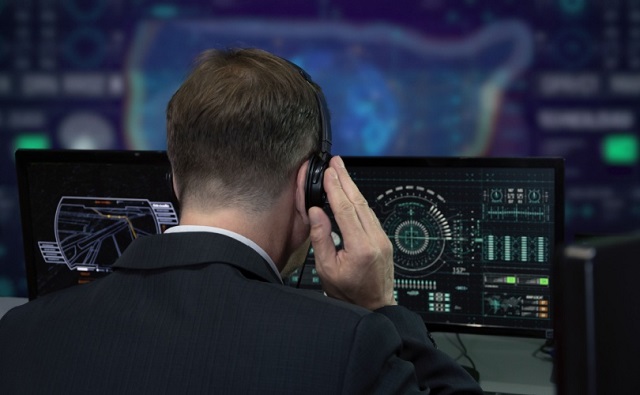
From LifeSiteNews
Legal experts have pointed out that under an updated version of the Foreign Intelligence Surveillance Act (FISA), delivery personnel, cleaning contractors, and utility providers could all be forced to surveil Americans.
U.S. President Joe Biden has quietly signed legislation reauthorizing and expanding the government’s ability to spy on American communications without a warrant.
On April 20, Biden signed the reauthorization of Section 702 of the Foreign Intelligence Surveillance Act (FISA) that allows the government to compel a broader range of businesses to collect the communications of U.S. citizens when they are in contact with foreigners, according to legal experts.
The newly passed, updated version of Section 702 accomplishes this by expanding the definition of “electronic communication service providers” who can receive FISA directives to tap communications by dropping the qualifier “communication” from electronic service providers. The new amendment, therefore, makes access merely to equipment on which communications are carried or stored enough to legally surveil Americans.
While the amendment lists types of businesses that cannot be considered Electronic Communication Service Providers (ECSPs), including public accommodations, dwellings, and restaurants, ZwillGenBlog points out that the law still allows the government to “compel the assistance of a wide range of additional entities and persons in conducting surveillance under FISA 702.”
“The breadth of the new definition is obvious from the fact that the drafters felt compelled to exclude such ordinary places such as senior centers, hotels, and coffee shops. But for these specific exceptions, the scope of the new definition would cover them — and scores of businesses that did not receive a specific exemption remain within its purview,” ZwillGenBlog explained.
The legal experts noted that among the entities that could be forced to surveil Americans under the amendment are “the owners and operators of facilities that house equipment used to store or carry data, such as data centers and buildings owned by commercial landlords,” as well as others who can access such equipment, including “delivery personnel, cleaning contractors, and utility providers.”
ZwillGenBlog also pointed out that “any U.S. business could have its communications” — if involving a foreigner — “tapped by a landlord with access to office wiring, or the data centers where their computers reside.”
Democratic U.S. Sen. Dick Durbin of Illinois had tried and failed to pass an amendment that would require government officials to obtain a warrant before spying on American communications, according to the Associated Press (AP).
“If the government wants to spy on my private communications or the private communications of any American, they should be required to get approval from a judge, just as our Founding Fathers intended in writing the Constitution,” Durbin said.
Critics of the new amendment warn that over the past year alone the FBI has unconstitutionally spied on Americans, including Republican U.S. Rep. Darin Lahood of Illinois, who serves on the Permanent Select Committee on Intelligence and the Committee on the Chinese Communist Party, as well as Americans present at or near the Capitol on January 6, 2021.
Under Section 702 of the Foreign Intelligence Surveillance Act (FISA), passed in 2008, the National Security Agency (NSA), operating inside the United States, is authorized to collect communications of foreigners overseas for foreign intelligence purposes without a warrant “because courts have held that foreigners have no Fourth Amendment rights,” according to Elizabeth Goitein.
“Although ostensibly targeted at foreigners, Section 702 surveillance inevitably sweeps in massive amounts of Americans’ communications,” Goitein further noted.
“Recognizing the impact on Americans’ privacy, Congress required the NSA to ‘minimize’ the sharing, retention, and use of this ‘incidentally’ collected U.S. person data. But the government and the FISA Court have embraced an interpretation of ‘minimize’ that is remarkably … maximal.”
“The NSA shares raw data with multiple other agencies — including the FBI and the CIA — and all of them retain the data for a functional minimum of five years. Moreover, the FBI routinely combs through it looking for Americans’ communications to use in purely domestic cases, even in situations where the FBI lacks a factual predicate to open a full investigation,” Goitein continued.
There are other means by which the U.S. government can spy on Americans. In 2022, Biden issued an executive order (EO) that allows the government to surveil Americans for broadly defined reasons including understanding “public health risks,” “political instability,” and the “threat” of climate change.
The EO was ostensibly written to “enhanc[e] safeguards” for “United States Signals Intelligence Activities,” which is intelligence gathering by the interception of signals, including communications, such as through cell phones, or those not used in communication. An accompanying fact sheet explains that the EO is meant to help “implement the U.S. commitments under the European Union-U.S. Data Privacy Framework (EU-U.S. DPF)” in an effort to “restore trust and stability” to transatlantic data flows.
Alongside permitting spying for the purposes of sizing up the capabilities of foreign entities, the EO permits signals intelligence collection for “understanding or assessing transnational threats that impact global security, including climate and other ecological change, public health risks, humanitarian threats, political instability, and geographic rivalry.”
The document’s lack of elaboration on such so-called “transnational threats” raises the question of the true scope of activity now officially subject to spying by the U.S. government, which is potentially massive.
espionage
One in five mail-in voters admitted to committing voter fraud during 2020 election: Rasmussen poll
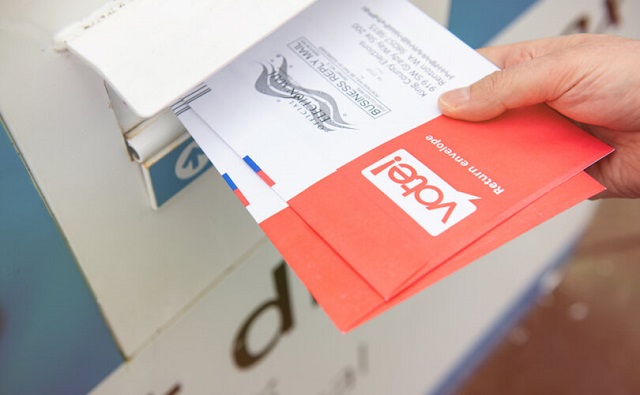
From LifeSiteNews
21% of mail-in voters admitted to illegally filling out a ballot on someone else’s behalf, and 17% admitted to voting from a state where they are not a legal resident.
One-fifth of voters who cast mail-in ballots during the 2020 presidential election admitted to committing at least one kind of voter fraud, according to the results of a recent poll conducted by Rasmussen Reports and The Heartland Institute.
Tucker Carlson posted to X on Friday an excerpt of a discussion with Justin Haskins, director of the Socialism Research Center at the Heartland Institute, in which Haskins explained how a poll conducted together with Rasmussen Reports revealed widespread illegal voter activity among mail-in voters during the 2020 election. The poll was first published in December, 2023.
About one in five mail-in ballots in the last election was fraudulent, handing Biden the presidency. We know this because the people who committed the fraud have admitted it in a new poll. pic.twitter.com/fxHL9hT4sw
— Tucker Carlson (@TuckerCarlson) April 26, 2024
Respondents who indicated that they voted by mail in the 2020 election were asked a series of questions probing for illegal, fraudulent activity, although the questions did not explicitly label these activities as “fraud.”
“For example, we asked people, ‘Did you vote in a state where you’re no longer a legal resident? If you’re not a permanent resident of a state, you can’t vote there. 17% of people, nearly one in five, said yes,” Haskins told Carlson.
He further shared that 21% of mail-in voters admitted to filling out a ballot on behalf of someone else, another illegal activity, and 17% admitted to forging a signature on someone else’s behalf, “with or without their permission.”
“So all told, it’s at least one in five mail-in ballots involved some kind of fraudulent activity,” said Haskins.
Of all voter respondents — both those who voted by mail and those who voted in person —10% said that “a friend, family member, co-worker, or other acquaintance” admitted to them that they voted by mail in a state other than the one they are registered in as their state of permanent residence.
“The results of this survey are nothing short of stunning,” Haskins remarked following the poll results. “For the past three years, Americans have repeatedly been told that the 2020 election was the most secure in history. But if this poll’s findings are reflective of reality, the exact opposite is true. This conclusion isn’t based on conspiracy theories or suspect evidence, but rather from the responses made directly by the voters themselves.”
“A democratic republic cannot survive if election laws allow voters to commit fraud easily, and that’s exactly what occurred during the 2020 election,” he continued. “Although some progress has been made in more than a dozen states since the conclusion of the 2020 election, much more work is needed in most regions of the United States. If America’s election laws do not improve soon, voters and politicians will continue to question the truthfulness and fairness of all future elections.”
Carlson pointed out that claims that the 2020 presidential election results were based on fraudulent votes are considered a “criminal offense” now in the U.S., at least to the extent that “that crime appears to form the basis of one of Trump’s pending indictments.” The indictment in question claims that Trump used “false claims of election fraud to obstruct the federal government function by which those results are collected, counted, and certified.”
Mounds of evidence of fraud in the 2020 general election have emerged, but this has been widely ignored by the mainstream media.
For example, in 2022, a peer-reviewed paper from accomplished economist and former senior researcher for the Department of Justice (DOJ), John Lott, compiled statistical evidence of voter fraud in the 2020 election, specifically, of about “255,000 excess votes (possibly as many as 368,000) for Joe Biden in six swing states where Donald Trump lodged accusations of fraud.”
Batches of votes that were suspiciously tallied overwhelmingly for Biden were reported the night of the election, reversing a former Trump lead in states like Pennsylvania and Wisconsin. And before the election, Project Veritas released a video showing voters being bribed and coaxed to vote for Democrats, including by changing their votes on the ballot.
-

 COVID-192 days ago
COVID-192 days agoCOVID Is Over — But Did We Learn Anything From It?
-

 Energy2 days ago
Energy2 days agoU.S. EPA Unveils Carbon Dioxide Regulations That Could End Coal and Natural Gas Power Generation
-

 John Stossel2 days ago
John Stossel2 days agoThe Swamp Survived: Why Trump Failed to “Drain the Swamp”
-

 Environment2 days ago
Environment2 days agoScientific Report Pours Cold Water On Major Talking Point Of Climate Activists
-
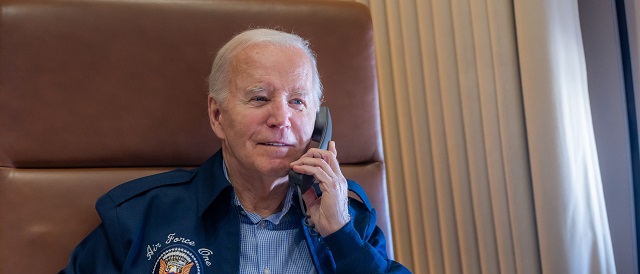
 conflict2 days ago
conflict2 days agoAmerica Is Really Bad At Foreign Interventions. Why Does Biden Think Ukraine Will Be Any Different?
-

 Opinion1 day ago
Opinion1 day agoBoy Scouts of America changes name to ‘Scouting America’ to be ‘more inclusive’
-

 conflict2 days ago
conflict2 days ago‘Got Played’: Israel Reportedly Suspicious Biden Admin Had Backroom Talks With Mediators Over Ceasefire Deal
-

 COVID-1917 hours ago
COVID-1917 hours agoElon Musk’s X will help fund COVID shot critic’s ongoing legal battle against Canadian university

